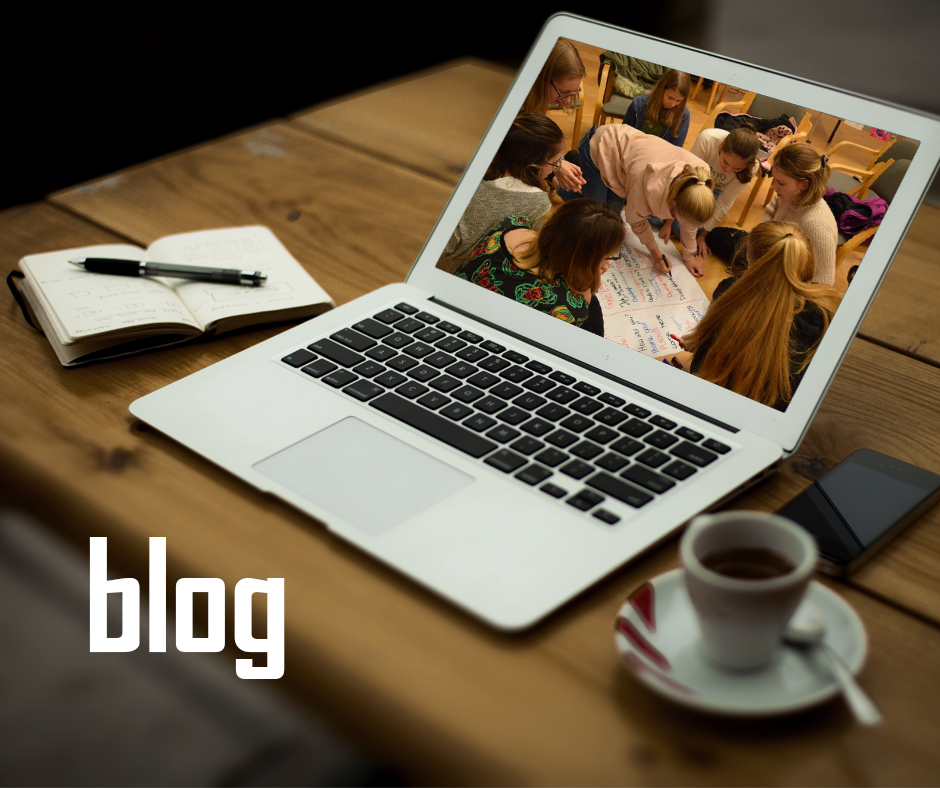.png)
My name is Agata and I have been working at the International Youth Meeting Center of the Kreisau Foundation for two and a half years. During this time, I have already organized many projects and youth encounters. But this time, as a participant in the #Youth4Peace program from 3 to 10 May 2025 in Berlin, I was able to experience the importance of international exchange in a new - and at the same time familiar - role.
Together with 80 young people:
→ from the Balkans, where states do not always act in the interests of its own citizens,
→ from Central Europe, where in various countries - including Poland - the rights of national minorities, queer people, people with disabilities and people with a migration background are violated,
→ from Eastern Europe, including Ukraine, where war is still raging
→ from the USA, where anti-democratic movements are becoming ever louder,
Read more: Youth4Peace

Liubov Shynder , IYMC Krzyżowa
I am writing this post a few days after the departure of the Polish-German-French youth group from Krzyzowa, which, inspired by the participants of this project, we called the project "Jazda!".
This slogan is a rarity among our projects lately. The names we use most often describe the content or form of the project in a direct way. That's why "Jazda!" was met with slight bewilderment on the part of my colleagues, but also with joy, after they got to know where the name came from, why exactly "Jazda".
That is why I also want to share this joy on the educator's blog.
The group of this project met in Krzyżowa for the second time this year. The previous online meeting took place in January, then there were several shorter meetings also online, and in May this year, the group met for a week-long programme in Marseille at the Camp des Milles, run by a partner organisation from France. It was then, at the first live meeting, that the need arose to choose a word in one of the participants' languages with which to easily evoke the attention of the whole group. At the same time, my fellow coordinating team members and I were thinking of a cleverer-sounding name than the previous one "We remember together to shape the future".
Read more: Challenges and successes and challenges that I count as successes - Liubov Shynder
Interview with Dr. Uki Maroshek-Klarman, Executive Director of the Adam Institute for Democracy and Peace in Jerusalem and creator of the "Betzavta-Adam Institute's facilitation method".
Anna Kudarewska: Can you please share a bit about "Betzavta-Adam Institute's facilitation method" and how it's used.
Uki Maroshek-Klarman: The "Betzavta-Adam Institute's facilitation method" deals primarily with education for democracy and peace. It‘s relevant, useful and applicable from kindergarten through high school in the formal and informal educational systems as well as for groups working in civil society, NGOs promoting human rights and democracy, communal leaders that encourage communities to help themselves, improve their quality of life, etc... The method is equally suited to young children up to the elderly. It‘s informed by philosophy, sociology and education. The notion was to enable everyone to take part in discussions about democratic values. How can we help understand folks democracy and have intrinsic motivation to promote it in a way that's accessible to all? Of course, the question arises: what should be taught if we want people to be more democratic? If we want everyone involved, we need to create a method that can facilitate that; not force people that are highly educated to lower their standard of teaching or study, and concurrently share their knowledge and thoughts with those that have fewer tools to understand/share their opinions and ideas. Through the "Betzavta – Adam Institute's facilitation" method, everyone partakes from their vantage point of understanding. The activities and games are "Betzavta" tools. You take part in activities that force you to reflect on what you're doing, understand things through this reflection, grasp the principles of democracy and how you can incorporate them into your private life, social life and politics. The activities are designed to enable you to communicate with your peers in the group from an equal standpoint. Games are played together in separate groups of different ages, interest or motivations. We can really learn about ourselves and our peers in the group. From the outset, it's about teaching, educating for democracy and peace.
Read more: „Democracy is about having equal rights to freedom for every person and group“ - interview with...
Anti-discrimination education is a huge challenge. Reflections after the training on the "Stories that move" tool
Liubov Shynder , IYMC Krzyżowa
In the second half of September I led a training for teachers at the Training and Counselling Centre of the Regional Methodology and Education Centre Metis in Katowice on our anti-discrimination education tool "Stories that Move" (you can read more about this project here).
One of the many things I have appreciated since we started this project is the possibility of dialogue with teachers and exchanging experiences from our work in formal and non-formal education, which we focus on at the International Youth Meeting Centre in Krzyżowa.
Such was the meeting in Katowice. The training was attended by 10 teachers, mainly working in secondary schools. If I were to sum up the reasons why they came to the training, I could make such a statement: "I want to establish a dialogue with my students, I am worried about the xenophobic and nationalistic sentiments I see in my school and I want to counteract it".
Read more: Anti-discrimination education is a huge challenge - Liubov Shynder



.png)





